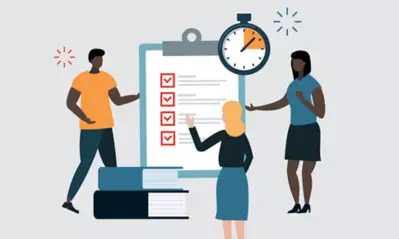University of Phoenix Survey Finds Veterans are Less Likely to Seek Mental Health Counseling than Active-Duty Military Members
By University of Phoenix
Only 30 percent of veterans have sought or considered professional counseling compared to 72 percent of active-duty service members
PHOENIX, Nov. 8, 2018 – University of Phoenix today announced survey findings regarding veterans and active-duty service members’ perceptions about mental health. The survey found that while more than 90 percent of all veterans and active-duty service members believe mental health is as important as physical health, there are significant differences in the likelihood to seek help. Only 30 percent of veterans have sought or considered mental health counseling compared to 72 percent of military personnel currently serving.
Old stereotypes and stigmas associated with mental health counseling might be preventing veterans from actually acquiring the help they need. When asked about their perceptions of counseling, 89 percent of active military members believe people who receive professional counseling generally get somewhat or a lot better, while only 66 percent of veterans feel the same.
“There has been a fundamental shift in the military regarding attitudes on mental health and we have seen real progress in reducing the stigmas associated with professional counseling,” said Samantha Dutton, Ph.D., LCSW, program director for University of Phoenix® College of Humanities and Sciences. “However, for veterans, that has not translated into a shift in the perception of mental health. Many of our veterans served in a culture where talking about your feelings or seeking help was not widely accepted.”
Retired Lt. Col Dr. Dutton served in the Air Force for 27 years. During her service, Dr. Dutton directed, led, and evaluated a full spectrum of mental health operations for service members and their families.
Changing Perceptions of Mental Health Counseling
Active-duty military personnel are more open to seeking mental health counseling than previous generations of veterans. This change may be based on different experiences as the culture is changing to one of acceptance and today’s military leadership is speaking openly about mental health.
- The survey found that 91 percent of active-duty service members say that their leadership openly discusses the importance of addressing mental health concerns.
- Comparatively, only 23 percent of veterans say that their leadership openly discussed the importance of mental health while they were in the service.
While mental health culture has undergone a positive shift for active-duty service men and women, the survey responses show we can change the culture for veterans as well. When asked what resources they would use to manage mental health, veterans mentioned access to free counseling (39 percent) most often. In addition, friends, family, and peers have a strong influence on veterans’ perceptions of receiving counseling. Fifty-eight percent of veterans said that they would be encouraged to seek professional counseling if a close colleague, friend or family member spoke about their experience receiving counseling.
One organization leading the charge in changing the culture of mental health and offering resources is Give an Hour. University of Phoenix works with Give an Hour that provides free, confidential mental health care, and support to military and veteran students, alumni and their loved ones. In addition to connecting veterans with mental health resources, the organization has launched educational initiatives to change the conversation about mental health, so that those suffering emotionally are better able to seek and receive care.
“This survey data is encouraging because it validates what we see in communities around the country – that we can change negative perceptions associated with mental health challenges and seeking professional help by having conversations and sharing our experiences,” said Barbara Van Dahlen, Ph.D., Founder and President of Give an Hour. “While we are definitely making progress within the military community, we must continue to change the broader culture if we are to succeed in saving lives and addressing the emotional pain experienced by some of our veterans. In order to remove the barriers that prevent those in need from receiving the care they deserve, we must all value our mental health just as we do our physical health.”
If you or someone you know is in need of mental health care, there are several resources available. University of Phoenix operates six counseling centers in five states (Ariz., Calif., Colo., Nev. and Utah) that offer free services to anyone in the community, including veterans. Additionally, Give an Hour harnesses the generosity of nearly 7,000 licensed mental health professionals who volunteer their time and expertise to help veterans, service members and their families.
For more information on the counseling center, or to set up an appointment, visit phoenix.edu/students/counseling-skills-centers. To learn more about Give an Hour, visit giveanhour.org. If you would like to help change the culture of mental health in America, please visit changedirection.org.
Survey Methodology
This survey was conducted online within the United States by The Harris Poll on behalf of University of Phoenix on May 24-June 8, 2018 among 1,010 US adults aged 18 and older, among whom 1,010 were US military- 126 who were active duty and 884 were veterans. Figures were weighted where necessary to bring them into line with their actual proportions in the population. Propensity score weighting was also used to adjust respondents’ propensity to be online. For complete survey methodology, please contact Melany Stroupe.
About University of Phoenix® College of Humanities and Sciences
University of Phoenix College of Humanities and Sciences provides students with foundational general-education competencies, such as the communication, mathematics, and critical-thinking skills that prepare them for professional growth. The college offers bachelor degrees in communications, English, history, environmental science, biological sciences, social work, psychology, and correctional program support services, and master’s degrees in psychology, community mental health counseling, and marriage, family and child therapy Through their rich professional backgrounds, Humanities and Sciences faculty members equip students with an understanding of how their coursework addresses real-world workforce needs. For more information, visit phoenix.edu/humanities and sciences.
About University of Phoenix®
University of Phoenix is innovating to help working adults move efficiently from education to careers in a rapidly changing world. Flexible schedules, relevant and engaging courses, and interactive learning can help students more effectively pursue career and personal aspirations while balancing their busy lives. University of Phoenix serves a diverse student population, offering associate, bachelors, master’s and doctoral degree programs from campuses and learning centers across the U.S. as well as online throughout the world. For more information, visit phoenix.edu.
About Give an Hour
Give an Hour, a nonprofit 501(c)(3) providing free mental health services to military members, veterans, and their families, was founded in September 2005 by Dr. Barbara Van Dahlen, a psychologist in the Washington, D.C., area. Give an Hour has been instrumental in the development of the community-based approach to addressing the challenges that face our nation’s military community, having created a successful model for harnessing skill-based volunteers eager to offer their services. Thus far, the network of nearly 7,000 licensed mental health professionals has provided more than 265,000 hours valued at over $26.5M to those in need. To learn more, visit www.giveanhour.org. For information on the Campaign to Change Direction visit: www.changedirection.org.


